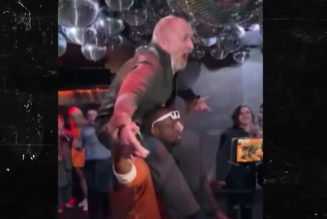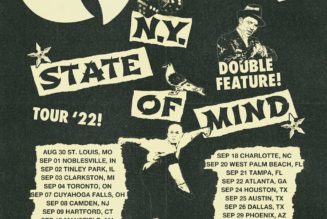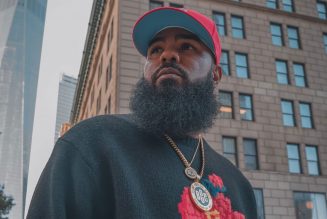
The history of R. Kelly’s allegations and belated fall from grace highlights the industry’s current crisis of culture. It has historically been a space where social norms are flaunted, disregarded or even subverted; especially with sex and drugs. The bigger the talent — artist or executive — the wider the allowances for behavior no “normal” person could get away with. As such, record labels and publishers have rarely directly addressed the personal lives of their artists in a critical way. There is currently no standard morals clause in recording contracts, and because the artist is not only the product but a brand and business unto themselves, public sentiment usually only impacts their label home so far as it affects sales, streams and airplay. If an artist’s viability drops, the label makes a business decision, not a values call.
But the “separate the art from the artist” ethos is quickly becoming bad form. The #MeToo movement spurred watershed moments in every area from politics to Hollywood — except the music industry, which has remained relatively unchanged and unreformed. There have been some high profile executive oustings, namely Republic Records’ Charlie Walk; and a handful of artists have been called to account for accusations of behavior ranging from creepy and inappropriate (Moby), to harassment and abuse (Ryan Adams). But these convos fade from public discourse relatively quickly — and in Black music specifically, there’s still a strong resistance to speaking out against or abandoning established figures, regardless of the accusations.
For example, Def Jam founder and mogul Russell Simmons stepped down from his company and moved to Bali following 2017 allegations of sexual harassment, assault and rape from a total of 20 women. Though allegations were widely covered by news and entertainment outlets and even eventually chronicled in the 2020 HBO Max documentary On the Record, there’ve been no public statements of note against Simmons from current music executives or former partners. Simmons, who has denied all allegations, has still been warmly welcomed in cultural spaces without challenge or attack, including calling in to Method Man and Redman’s April Verzuz battle to wish his two former artists well, and sending a pre-taped video message for rapper DMX’s funeral (which veered uncomfortably into admissions of his own drug use and former head space).
The reticence is partially out of a loyalty to community, but the pervasive pattern of dismissing the voices and value of Black women and girls can’t be overlooked. Chance the Rapper admitted in an interview aired as part of Surviving R. Kelly that he possibly didn’t give weight to the allegations against the fellow Chicago native, which were even more prevalent locally, “because I didn’t value the accusers’ stories because they were Black women.”
“There are R. Kelly’s in our neighborhoods, in our communities,” Tarana Burke, founder of the #MeToo movement explained to Trevor Noah in 2020. “We cannot get people to pay attention to the plight of sexual violence against Black and brown girls. And R. Kelly is a perfect example of it.”
On a broader scale relative to R. Kelly’s case, the history of American popular music’s relationship to teenage girls is a gross and murky one altogether. They were the centerpiece of rock and R&B songs, the romantic interest in videos, and the default profile for music groupies. Teenage girls were sexualized in music and pop culture well into the early 2000s, and for much of that time there was an eyebrow raise at most for adult men who publicly pursued girls in or just barely out of their teens.
“Adult recording stars have been exploiting their underage fans since the days of Jerry Lee Lewis and Elvis Presley. For decades, society normalized that dynamic,” former label executive and writer Drew Dixon tells Billboard. Dixon is one of the women who publicly said Simmons raped her, and a vocal activist for change and accountability in the music business. “The assumption that a popular recording star with countless attractive women to choose from wouldn’t need to exploit women, and therefore can’t possibly be an abuser, set the stage for the sexual exploitation of minors in and around the music industry to happen in plain sight.”
Kelly’s preference for younger girls was never really in question, nor was it something he necessarily tried to hide. When MTV’s Touré once asked 40 year-old Kelly, on air, if he liked teenage girls, Kelly famously responded by asking, “When you say teenage, how old are we talking?” But the extent to which his behavior was predatory, as opposed to consensual, was the point of debate for those who wanted to defend him. However, the public discourse and social barometers around consent have evolved swiftly over just the last decade. What was once considered “creepy” is now rightfully called “grooming” or “assault.”
“As society comes to terms with the inability of a child to consent to sex with an adult, (predatory) behavior emerges in a new and troubling light,” Dixon adds. “The sexual exploitation of young women and girls that was perpetrated over decades by R. Kelly is an extreme and particularly odious example of a dynamic that is as old as the derisive concept of the music industry ‘groupie’ itself.”
His position as one of the most formative artists and producers of modern R&B also served as a significant deterrent to accountability for Kelly. At his height, Kelly boasted multi-platinum albums an average of every two years, even following his 2002 arrest. When DeRogatis’ story dropped in 2017, Kelly was already on a commercial decline. His last studio album in 2015 was the lowest selling of his career, and his last single to chart on the Hot 100 was in 2013. Still, it was only after in-person protests and immense public pressure following Surviving R. Kelly that RCA parted ways with their career artist in January 2019. They did so with no official statement and only anonymous confirmations to press — while simply removing him from the label’s web site. (SONY was equally discreet about the company’s break with producer Dr. Luke in 2017, following his protracted legal battle with Kesha over allegations including sexual assault and harassment.) After Kelly was dropped by RCA, it was revealed that his publisher, Universal, had quietly severed their relationship months prior.
It’s hard not to speculate whether the turn in public and professional sentiment would have happened with a still multi-platinum selling act. “The elaborate scaffolding of the music industry, combined with society’s contempt for Black women and girls, allowed R. Kelly’s abuse to go on for decades,” Dixon insists. “Major stars in the record business spawn their own mini-economies, where they are surrounded by a web of resources and yes-men. If the star at the center of that mini-economy happens to be a sexual predator, the resources of that ecosystem can be used to ensnare victims and to shield the star from accountability.”
It’s impossible to examine the 25-year documented timeline of R. Kelly’s accusations next to his career timeline over the same period and not consider it an indictment against every facet of the business that allowed his career to thrive. DeRogatis, after more than 20 years of reporting on Kelly as arguably the closest journalist to these stories, was clear on the culpability of the players around the artist. “By refusing to derail the gravy train, [executives, managers and promoters] allowed this man to continue – because it was money.” he emphasized to NPR in 2019. “ It was money that allowed him to prey on these girls… If he is brought to justice now… it is only going to be because he’s broke.”
Perhaps of even more consequence than enabling his continued financial success, the years of support emboldened Kelly. Both his victims and people who’ve worked with or around him have reported that he doesn’t believe he’s done anything wrong. In 2018, Kelly released a 19 minute-long musical diatribe called “I Admit,” a rambling, lyrical “confession” of being imperfect, sleeping with a lot of women, being illiterate and signing away his publishing. It’s also a self-righteous rebuke of allegations of misconduct worthy of jail or public scorn (“Am I supposed to go to jail or lose my career because of your opinion?”), one that assumes a position of persecution (“Turn the world against me, but only God can mute me”), and eschews any sense of regret, remorse or responsibility (“Don’t push your daughter in my face, and tell me that it’s okay/ ‘Cause your agenda is to get paid, and get mad when it don’t go your way.”)
Individuals and organizations have been working since 2017 to amend their roles in maintaining R. Kelly’s extended grace; many of the artists he wrote and produced for or collaborated with have either publicly said they’re removing the songs from their live sets, like R&B artist Joe; or have pulled the tracks from streaming services, like Lady Gaga and Jennifer Hudson. Conversations about how those services themselves should handle Kelly’s catalog are less simple and will take longer to navigate. The founders of the #MuteRKelly movement called for streaming services to pull Kelly’s music after he was dropped from RCA, in order to dry up the revenue stream that allowed Kelly to avoid consequence for so many years. However, Kelly currently owes several million dollars in judgments, so that’s money that would satisfy suits won by both creditors and victims.
(In 2018, Spotify, who already had a “hate speech” policy, announced a “hateful conduct” policy saying “When an artist or creator does something that is especially harmful or hateful (for example, violence against children and sexual violence), it may affect the ways we work with or support that artist or creator.” But the company pulled the official policy relatively quickly — partly under industry pressure — realizing it was too difficult to assign clear cut parameters on which artists would fall under this policy, and enforcing it without veering into censorship. Spotify has, however, continued to exclude R. Kelly music from its promoted playlists.)
But again, Kelly is a symptom, not the problem. Sadly, there’s no shortage of artists in music history who are both praised as legends and were abusers. R. Kelly’s case was just the most high-profile and severe — moreso even than Michael Jackson, whose decade-plus of child molestation and abuse allegations and 2005 trial were global news, but ended with his acquittal, and weren’t accompanied with the same level of public corroboration and confirmation of allegations. (Or, for that matter, with an extensive amount of music directly related to his charges, as with Kelly.) However, now is a moment of reckoning for the industry; an opportunity to shift the pervasive rule of “see something, say nothing” and the practice of separating art from artist to a dangerous fault.
The pressing question is not just what to do about R. Kelly’s musical legacy, but how to change the environment that allowed him to operate with impunity for so long. But is the music industry ready to examine its ethical responsibility where artists are concerned? Unfortunately, probably not. “I don’t foresee (a change in how the industry handles artist allegations) happening ,” shares Jeffrey Sledge, a former Jive Records executive. “Unless (the artist’s actions are) so out of hand like Robert’s that you can’t avoid it. And if the artist is still selling and profitable, they will avoid it.”
There are, currently, active recording artists with publicly known patterns of repeat domestic violence and/or sexual assault — convicted or alleged — who still enjoy the support of fans, platforms, collaborators and labels. Chris Brown, whose single “Go Crazy” peaked at No. 3 on the Hot 100 this March, has faced a string of accusations and charges of violence against women in the decade plus since he pled guilty to felony assault against then-girlfriend Rihanna. This includes a current restraining order from ex-girlfriend Karrueche Tran, granted in 2017 for five years due to what she said were repeated violent threats. Marylin Manson, currently facing multiple lawsuits and additional allegations of sexual assault, battery and abuse from women including former fiancée Evan Rachel Wood, is one of the featured artists on Kanye West’s chart-topping Donda album, and was a surprise guest at West’s elaborate pre-release listening sessions.
Burke is also skeptical that any significant change will happen immediately, but she’s not without hope for the future. “History (and present) has left me with low expectations from the music industry. I would hope that this verdict would raise the bar in the industry so that so called ‘bad behavior’ isn’t rewarded or ignored, but grounds for distancing from artists who don’t represent the standard that the industry stands by,” she tells Billboard. “I don’t think it will happen, not right away. But, I am hopeful that small incremental changes like not playing music by convicted rapists will get us closer. We the survivors are also the customers. We have been treated like our voices don’t matter for so long — maybe the outcome of this trial will change that.”
What’s clear is that although R. Kelly’s first of three trials is over, the music industry — which enabled the star over decades to build a network around his sex crimes so intricate that he was convicted of racketeering charges — still faces judgement. And with Kelly’s conviction, feigned ignorance will be a much less convincing defense.











